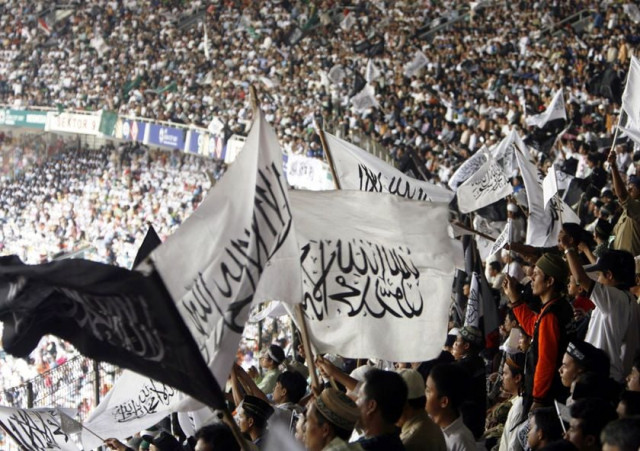Hizbut Tahrir and the armed forces
What is upsetting is that Brigadier Khan was allegedly hobnobbing with an organisation opposed to democracy.

Hizbut Tahrir and the armed forces
What is upsetting is that Brigadier Khan was allegedly hobnobbing with an organisation opposed to democracy — according to them, whoever supports democracy is a kafir — that believes in imposing khilafat on the world. Hizbut Tahrir is not an extension of al Qaeda but its desire to impose khilafat brings it close to the ideas propagated by al Qaeda leader Aiman alZawahiri. Hizbut Tahrir was allowed to operate in Pakistan together with a more lethal organisation, al Muhajiroun, under General Musharraf.
Hizbut Tahrir has, to some extent, penetrated the armed forces, as indicated by a military spokesperson. Colonel Shahid Bashir, a former commanding officer of the Shamsi Air Force Base, was apprehended by the military police in 2009 for his connection with the banned group. Along with him were others: A retired PAF squadron leader-turned-lawyer, Nadeem Ahmad Shah, and a US-educated mechanical engineer, Awais Ali Khan.
What is disturbing about Brigadier Khan being detained is that he was an ideal army officer, with a brilliant career and credentials second to none: His father was in the army as is his son-in-law, while his younger brother is a colonel serving in the intelligence service. The attraction of Hizbut Tahrir is significant because it comes laced with the thinking of UK-based Pakistani extremists. As a UK-based outfit, most of its members are Pakistani youths since Pakistanis form a majority of Muslims living there.
Based on the teachings of a Palestinian cleric, Hizbut Tahrir remains mysterious in its British manifestation. For some time, people suspected that cleric Omar Bakri headed it, then the suspicion was centred on Abu Hamza alMasri. (Bakri has been deported and alMasri is in jail because his outfit, al Muhajiroun, celebrated 9/11 and supported al Qaeda.) In Pakistan, its leaders have been sporadically jailed. Hizbut Tahrir once used the media for spreading its message but now it has gone silent. Its manpower often comes from UK-based alienated youths who land teaching jobs in English-medium schools in Pakistan.
It was in 2009 that a Hizbut Tahrir leader, teaching at a college in Lahore, aired what may be called the organisation’s plans. He said that “the organisation’s aim is to subject Muslim and western countries to Islamic rule under Shariat law, by force if necessary. Islamic rule would be spread through indoctrination, and by military means if non-Muslim countries refused to bow to it”. As for the strategy in Pakistan, he said it was “to influence military officers, persuading the army to instigate a bloodless coup against the present government. It is the military who hold the power in Pakistan and we are asking them to give their allegiance to us.”
Hizbut Tahrir may not be aligned with al Qaeda but its language does not differ from the one used by al Qaeda ideologues. The fact is that while Pakistan has a system of representative democracy which is functional, its Constitution declares it an Islamic republic where a Federal Shariat Court ensures the practice of Shariat. The Pakistan Army’s actions against Brigadier Ali Khan to find out why such an officer should betray his country’s Constitution are understandable, as is the process started by General Ashfaq Parvez Kayani to ensure that the army remains professional, free of all potentially disruptive ideologies floating around in the Islamic world.
The example of Brigadier Khan will have a good demonstrative effect and it will help the forces develop the capacity to detect designs of organisations who wish to make inroads into our military for their hostile objectives.
Published in The Express Tribune, June 23rd, 2011.















COMMENTS
Comments are moderated and generally will be posted if they are on-topic and not abusive.
For more information, please see our Comments FAQ